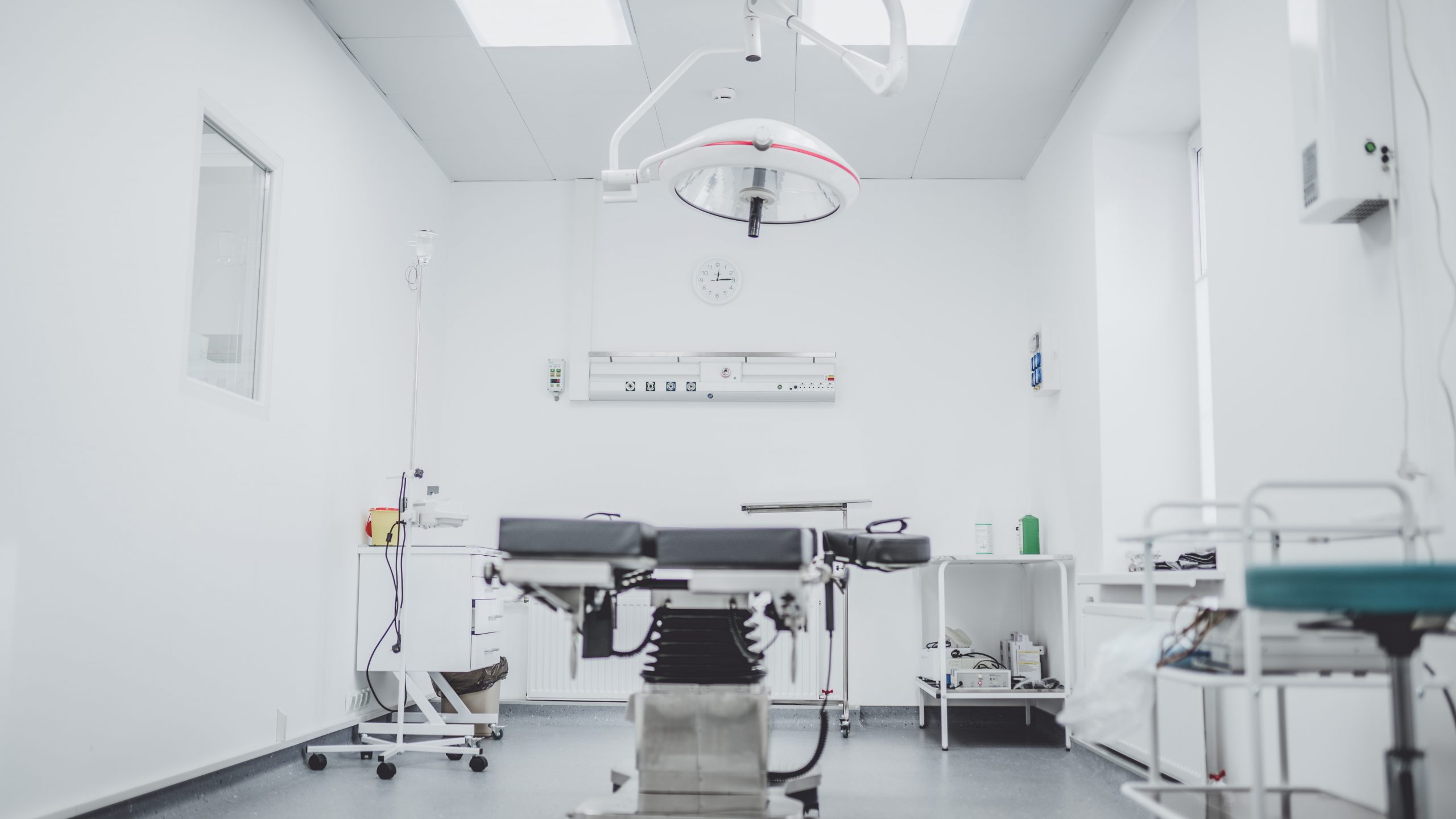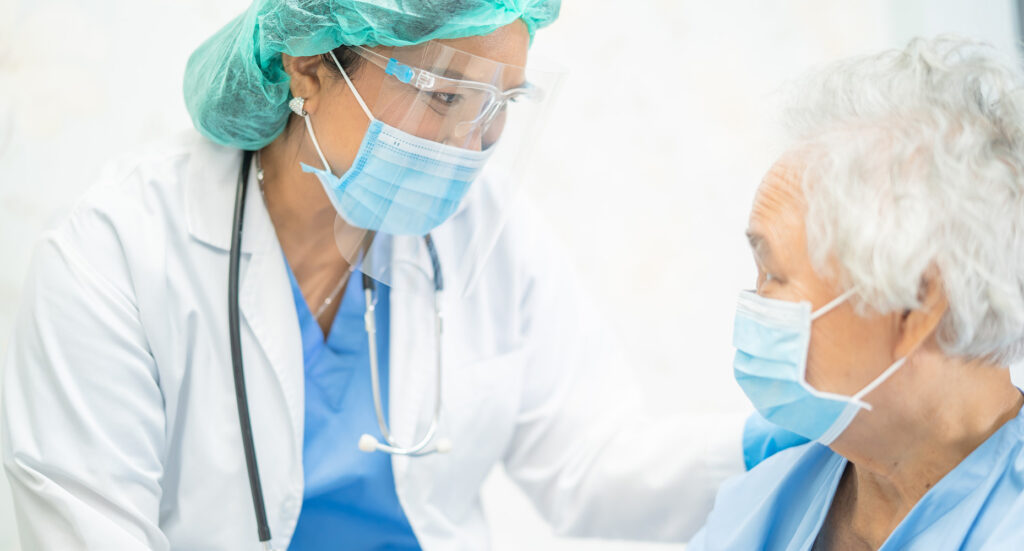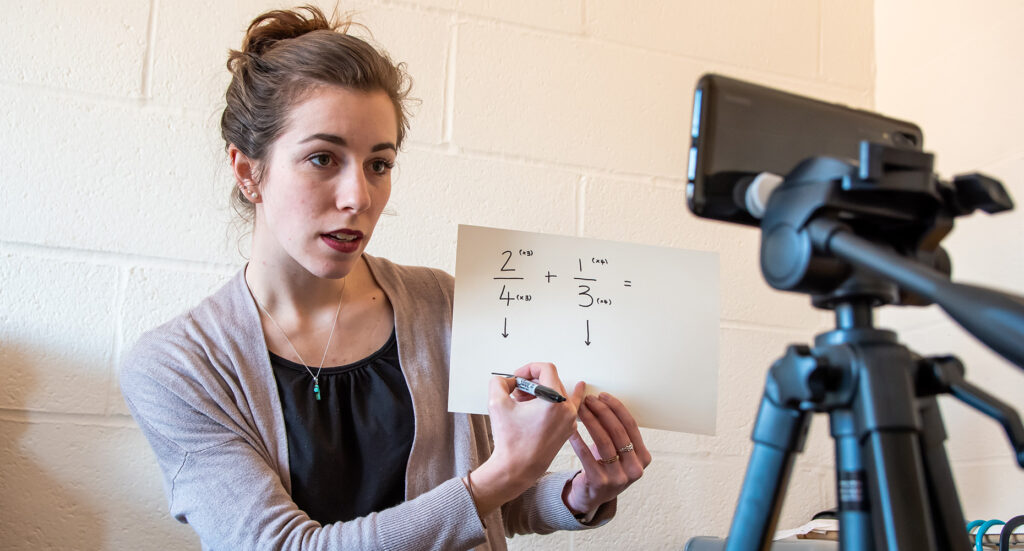Reflecting on COVID-19: Professional Perspectives from the Trenches
The COVID-19 pandemic, an unprecedented experience in our lifetimes, opened the door to a variety of unusual situations, challenging personal and professional resilience worldwide. In this article, three professionals — a doctor, a scientist, and a teacher — reflect on their pandemic experiences and share what they have learned.


Reflecting on COVID-19: Professional Perspectives from the Trenches
July 27, 2021
.
The COVID-19 pandemic, an unprecedented experience in our lifetimes, opened the door to a variety of unusual situations, challenging personal and professional resilience worldwide. In this article, three professionals — a doctor, a scientist, and a teacher — reflect on their pandemic experiences and share what they have learned.
The Doctor
Dr. Carlo Biscardo specializes in occupational health and preventive medicine in Verona, Italy, a city flanking the epicenter of the Italian outbreak of January 2020. Today, he worries most about lingering psychological maladies that could plague patients and healthcare professionals post-COVID-19.
“There is a Greek word, holos, that comes to mind,” says Biscardo. “It refers to ‘the whole.’ During the pandemic our priority was to triage patients and save lives. We could treat the body, but in the rush there was little time to think about the mind and soul.
“People died alone, elderly people went long periods without contact from their families, doctors and nurses had to make difficult decisions. The result is a different kind of wound: psychological harm. As patients return to our offices, we must remember to treat the whole person and to take care of ourselves as well.”
Biscardo says he has talked to doctors and nurses who are suffering from symptoms of burnout, which include fatigue and sleep issues. A Kaiser Family Foundation (KFF)/Washington Post survey of U.S. frontline healthcare workers reports that more than half of respondents said their mental health had been negatively affected as a result of the pandemic. Many reported unfavorable changes in their physical health (headaches, stomachaches, sleep disorders) and relationships.1

.
“We’ve been living in a highly agitated state for the past year,” he says. “The fear of getting sick, caring for the sick and pondering the possible consequences led to a great deal of instability.” Although many healthcare workers remain hopeful as normalcy returns,1 public health researchers cite the need for policies and programs that prioritize and support the well-being of healthcare workers.2
As for the practical lessons he can pass on to patients, Biscardo says he reminds them of the small things they can do to maintain health, such as handwashing, social distancing and sneezing into their elbows. He also tries to educate patients about immunity in order to help them gain peace of mind.
“Patients need to be careful, without being scared. Otherwise, they cannot enjoy life,” he says. “Drugs and vaccines are useful in helping our immune systems work, but there are other things people can do to help the process.”
Examples of practices3 that can support a healthy immune system include:
• Don’t smoke.
• Eat a diet high in fruits and vegetables.
• Exercise regularly.
• Maintain a healthy weight.
• If you drink alcohol, drink only in moderation.
• Get adequate sleep.
• Wash your hands frequently and cook meats thoroughly.
• Try to minimize stress.
• Keep current with all recommended vaccines. Vaccines prime your immune system to fight off infections before they take hold in your body.
And, while he applauds the evolution of telemedicine, Biscardo advocates bringing patients back into the office. “Changing the setting of a medical visit can change everything,” he says. “When a patient walks into the office, we get all sorts of clues — from their gait, their dress, their cleanliness — that speak to their health. Telemedicine today is amazing, but I believe it creates a certain distance that might impede empathy and full observation.”
In closing, Biscardo recommends looking ahead. “Right now, the main topic should be post-COVID-19,” he says. “Our patients and peers are facing clinical consequences of ‘long-haulers,’ psychological consequences, and the simple questions of how to maintain a healthy work life, social life and family life. Healthcare professionals need to start talking about how to move forward.”

The Scientist
Nic Preece works for a healthcare company instrumental in the COVID-19 effort. He believes the pandemic sounded a much-needed alarm within the scientific community.
“We focus a lot of energy on a few diseases, and many feel we let our guard down where infectious disease and bacteria are concerned,” he says. “There is a need for real-time intelligence aimed at monitoring pathogens in our environment so we’re ready to fight deadly infections when they occur.”
Preece said the pandemic also highlighted the need for continuous education on the part of scientists. “Sometimes we tend to overspecialize and get wrapped up in new technologies,” he says. “Technology is enabling fantastic advances, but the theoretical and fundamental principles — the nuts and bolts — can’t be ignored.
“After all, the tremendous results achieved by the newly developed vaccines reflect what we learned about viral disease during the battles waged against HIV years ago. At that time, AIDS was a terrifying viral disease that came out of nowhere. Research aimed at understanding that virus drove many advances made in the past year.”
While he previously contemplated retirement, Preece says the pandemic renewed his interest in science and caused him to realize he still had much to offer. Today he is excited to be involved in the effort to improve access to better healthcare tools and services.
He also takes pride in the collaborative spirit of the scientific and medical communities: “Academics, healthcare providers, pharma, diagnostic companies, distributors and others all came together in a phenomenal effort to bring us tests, cures and vaccines.”

The Teacher
Lisa Johnson, a pre-kindergarten teacher in a metropolitan school district, recalls the notice she received one afternoon in mid-March 2020 canceling classes. “The message came two weeks before we were scheduled to go on break for a month,” she says. “I thought we would be back in six weeks.”
That six-week break turned into 13 months, during which time Johnson was challenged to train parents and children in the intricacies of online education. “We were lucky to have strong school district support,” she says. “The district ensured that children received meals and provided technology. It was also reassuring that they collaborated with medical professionals from our local and academic healthcare systems to make decisions.”
When in-person classes finally resumed in April 2021, Johnson felt confident in safeguards the school district had established:
• Teachers had the opportunity to get vaccinated before returning to classes.
• Students were required to declare the intention to return ahead of time in order to help schools plan for social distancing.
• Students completed health surveys.
• Parents and teachers were required to fill out daily well-being forms.
• The district installed equipment in classrooms to improve ventilation/air quality.
• Schools provided cleaning materials and extra masks for children.
“There was so much to think about. Even small things like extra masks were important because little kids have ‘mask accidents,’” says Johnson.
When school resumed, half of her students returned. She is hopeful that the number will be higher in the fall, although her district will offer a virtual academy for students desiring to remain at home.
“Some teachers are still having difficulty with the changes, but I feel pretty comfortable now,” says Johnson. “I’m more worried about giving the children time to breathe fresh air! Luckily, we have opportunities and the space for ‘mask breaks’ throughout the day.”
She also believes that some of the lessons she learned during the pandemic could be useful to physician practices. “For teachers, communication was key,” she says, “and we had to find a variety of ways to communicate with parents and enlist their help.
“I noticed many families were getting health information from sources that were not always reliable. It created a lot of confusion. Hopefully cities and schools can work with healthcare professionals to ensure that next time there will be additional tools for distributing better healthcare information more quickly and consistently.”
For more information on ways to remain healthy, see:
Six Tips to Enhance Immunity
How to Protect Yourselves and Others
Guidance for COVID-19 Prevention in K–12 Schools
COVID-19 Physician Well-Being
Footnotes:
1 Kirzinger, A., et al. “KFF/The Washington Post Frontline Health Care Workers Survey.” KFF, Mar. 2021, https://files.kff.org/attachment/Frontline%20Health%20Care%20Workers_Full%20Report_FINAL.pdf.
2 Søvold, Lene E., et al. “Prioritizing the Mental Health and Well-Being of Healthcare Workers: An Urgent Global Public Health Priority .” Front. Public Health, vol. 9, no. 679397, 7 May 2021,. doi: 10.3389/fpubh.2021.679397
3 “Healthy ways to strengthen your immune system.” Harvard Health Publishing, 15 Feb. 2021, https://www.health.harvard.edu/staying-healthy/how-to-boost-your-immune-system.
Related Articles
Introducing the HemoCue Customer Portal